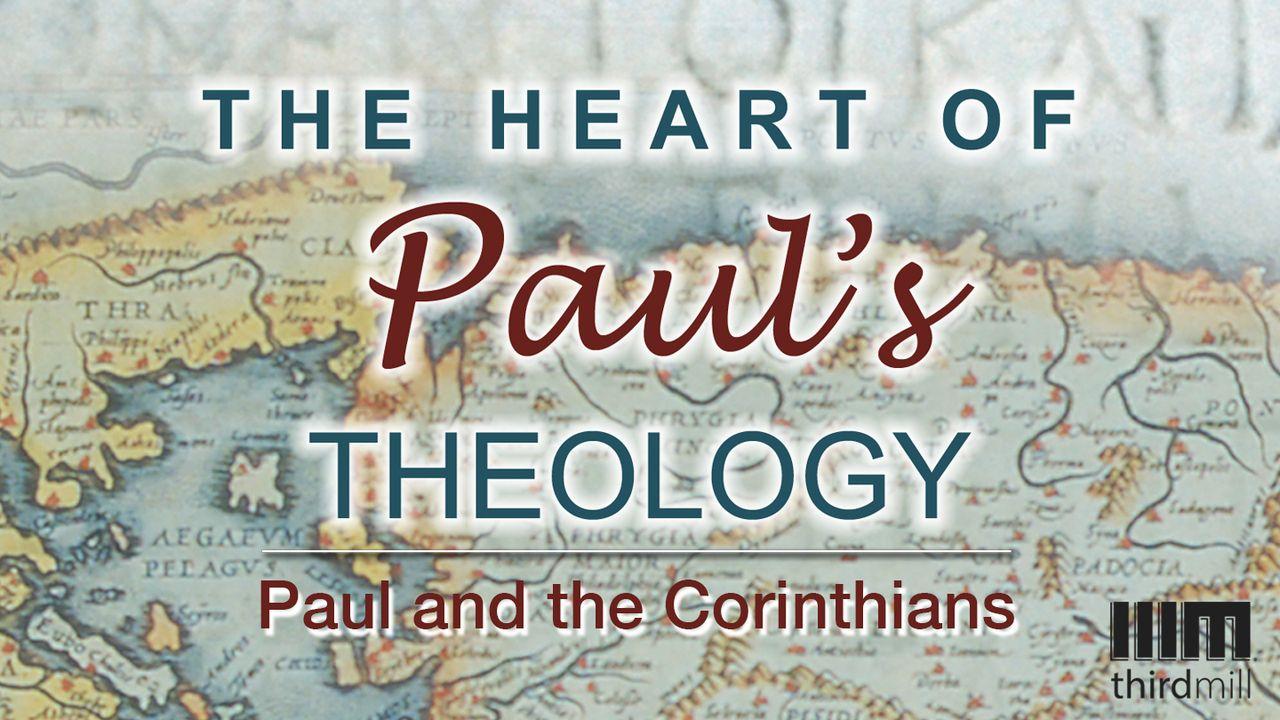The Heart Of Paul’s Theology: Paul and the CorinthiansSample

Problems in Worship: 1 Corinthians 11:4-5
A third major problem in the Corinthian church was misconduct in worship. We have already seen that one of these was the mistreatment of the poor during the Lord’s Supper. Beyond this, issues also arose with regard to three other issues: gender roles, the use of spiritual gifts, and meat sacrificed to idols.
In the first place, Paul was concerned about the way men and women conducted themselves in public worship. One corrective he gave pertained to the use of head coverings during prayers. In 1 Corinthians 11:4-5 he wrote:
Every man who prays or prophesies with his head covered dishonors his head. And every woman who prays or prophesies with her head uncovered dishonors her head.
Scholars disagree as to whether Paul was speaking of the use of prayer shawls or veils, or whether he was referring to hairstyles. There is also a lack of consensus as to the identity of the “head” that is dishonored. Some think “head” refers to that part of one’s body, while others believe that the man’s head is Christ and the woman’s head is man. But regardless of what these terms denote, the underlying issue is clear: men and women were acting dishonorably in worship, in part by blurring the appropriate distinctions between the genders.
In the second place, Paul also dealt with the use of spiritual gifts in worship.
Evidently, many Corinthian believers possessed spectacular gifts such as tongues and prophecy, and they used them so frequently in worship services that disorder ensued. In 1 Corinthians 14:26-33, Paul addressed the situation this way:
Everyone has a hymn, or a word of instruction, a revelation, a tongue or an interpretation… If anyone speaks in a tongue, two — or at the most three — should speak, one at a time, and someone must interpret… Two or three prophets should speak, and the others should weigh carefully what is said. And if a revelation comes to someone who is sitting down, the first speaker should stop… For God is not a God of disorder but of peace.
From Paul’s words here, it would appear that worship services in Corinth were confusing and disorderly, with many people speaking simultaneously. Paul insisted that unless believers listen to one another and defer to each other, they do not benefit from the words the Spirit has given.
In the third place, we should mention the issue of meat sacrificed to idols. In the ancient world, much of the meat sold in the marketplace had previously been sacrificed or devoted to an idol, and meals could even be obtained directly from pagan temples. Now, Paul insisted that pagan worship practices did not taint the meat, and that Christians could eat this food as long as they did not do it as an act of pagan worship. But he also warned that believers committed idolatry when they ate with the wrong mindset. He addressed this issue in 1 Corinthians 8:7:
Some people are still so accustomed to idols that when they eat such food they think of it as having been sacrificed to an idol, and since their conscience is weak, it is defiled.
Put simply, by eating meat that had been sacrificed to idols, Corinthian Christians with a poor understanding of theology were mixing the worship of Christ with the worship of pagan gods. Paul also pointed out that even mature believers sinned when their eating added to their weaker brothers’ confusion.
Scripture
About this Plan

This reading plan explores the background to Paul's letters to the Corinthians, examines the structure and content of First and Second Corinthians, and reveals his eschatology.
More
Related plans

Why Read the Bible? 30 Reasons Jesus Did

God's Child

Hustle and Pray: Work Hard. Stay Surrendered. Let God Lead.

Sukkah: Living in Joy

Father’s Love: 30 Days of Discovering God as Father

Two-Year Chronological Bible Reading Plan (First Year-February)

God Selected You

A Legacy of Faithful Motherhood

The Bible in Six Acts: The Jesus Bible Study Series
